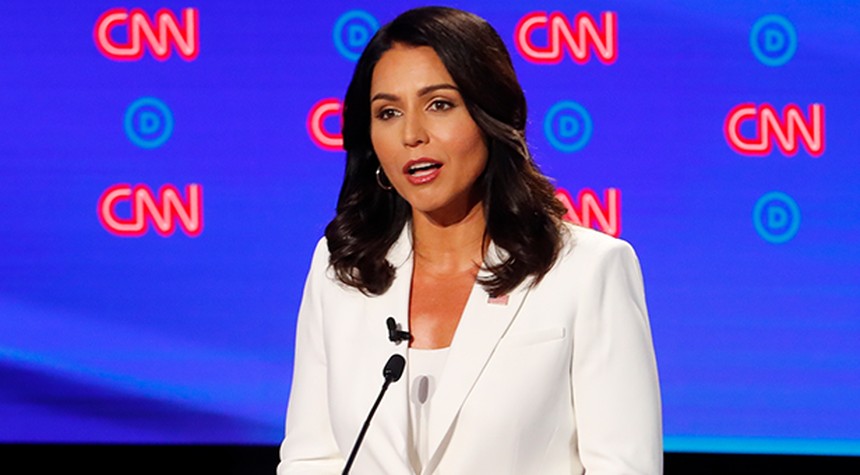Yesterday, we mark the 20th anniversary of 9/11, the tragic day on which 3,000 Americans and others were murdered by Islamist terrorists. Several RedState writers have commemorated the anniversary far better than I ever could, as the nation once again pledges to never forget.
But have we forgotten? That’s an issue Tulsi Gabbard tackles in her post on this solemn day, and I believe it’s one worth discussing.
Certainly, we remember the planes streaking across our news broadcasts. We remember the lumps in our stomachs as people began to jump to their deaths. And we remember the anger in her hearts as the Towers fell, taking with them thousands of lives.
Yet, when it comes to discussing the true horror of that day, the cause of it has become more and more obscured, shielded by a misguided pursuit of political correctness and a desire to make domestic issues paramount. We saw that today, as former President George W. Bush inexplicably insinuated that January 6th participants are no different than the 9/11 hijackers in his speech.
But they are different, and I think that’s what Gabbard is getting at in her post.
Yes, you can condemn both, but Islamist terrorism is clearly a far more deadly, far more globally impactful issue than political conspiracy theorists scuffling with cops. We were all reminded of that over the last month after Islamic terrorists in Afghanistan murdered 13 American servicemembers and upwards of 200 Afghan civilians, including many women and children.
The rush to turn every discussion of terrorism into consternation about grandmothers walking around the Capitol Building taking selfies is obviously cynical, but it’s also dangerous. We have truly forgotten the threats we face, and that threat goes far beyond the borders of the United States. Islamists take thousands of lives a year via direct attacks and untold numbers of other lives via the brutal, dictatorial regimes they perpetrate.
Yet, we have spent more time arguing about a mentally ill man in a headdress the last year than the most deadly terrorist threat in the world. I’m happy to insert all the typical qualifiers about not all Muslims being terrorists, but I don’t think anyone is asserting that, and it’s lazy to constantly make that the issue whenever this discussion comes up. Islamic terrorism, whatever minority it may represent, is still the preeminent organized, deadly threat that Americans face across the globe.
But again, as Gabbard notes, this goes beyond just what affects Americans. Hundreds of millions of people live under the dehumanizing dictates of Islamist ideology. And while we can’t police the world, we can at least recognize and speak out against the tyranny that is so plainly visible.

